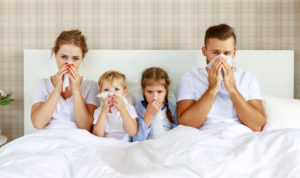 Over the past few weeks, there has been growing concern about a coronavirus outbreak. Are you at high risk?
Over the past few weeks, there has been growing concern about a coronavirus outbreak. Are you at high risk?
Probably not. Although a handful of North American cases have come to light in the past week, the virus is largely concentrated in Wuhan, China. Other countries in the Far East have reported cases, but that is a long way from here.
Advertisement
At this point, here in America, you have a far greater likelihood of catching the flu. As minor as the flu sounds, it can be very serious. So far, 13-million Americans have been hospitalized for their symptoms and 6,000 adults have died from it.
The overall strength of your immune system plays a major role in the susceptibility and severity of viral illnesses like the flu and coronavirus. So far, reports indicate that coronavirus is taking the lives of the elderly, who generally have a number of health conditions that tax the immune system.
One major influencing factor on immune health and your likelihood of contracting and fighting illness is inflammation. Low-grade, or chronic, inflammation takes up valuable resources from your immune system, resulting in less protection and functionality when an infection does hit.
The best way to reduce your chances of succumbing to a viral illness, therefore, is focusing on building a healthy immune system by limiting systemic inflammation.
Some immune-boosting practices include:
- Getting seven-to-nine hours of sleep each night.
- Maintaining a healthy weight.
- Eating plenty of fruits and vegetables (minimum four servings per day of each)
- Limiting intake of processed/refined/high sugar foods.
- Drinking adequate fluid (water, tea, coffee, etc.)
- Getting regular exercise/activity
- Limit alcohol
- Manage stress
- Don’t smoke
Fruits and vegetables are extremely important for limiting inflammation and promoting immunity. They are nutritionally dense, great sources of valuable antioxidants that equip your cells to fight damage, and also contribute to weight management.
Advertisement
Of course, your overall lifestyle can play a massive role in immunity and resilience, but it is not the be-all-end-all. Nothing is. In addition to these lifestyle factors, you may reduce your risk for flu or other bacterial and viral infections by:
- Regularly washing hands with soap and water for at least 20 seconds.
- If you can’t immediately wash your hands after touching high-traffic or public surfaces, use alcohol-based sanitizers.
- Avoid touching your mouth, eyes, or nose with unclean hands.
- Avoid close contact with sick people
Unless you’ve recently been to Wuhan, China, or have been in close quarters with someone that has, you’re at very low risk for coronavirus. But the flu is a more pressing here in America that you should be wary of.
Take the appropriate steps to limit systemic inflammation and build a healthy immune system. Doing so can greatly affect your risk and response to illness.
